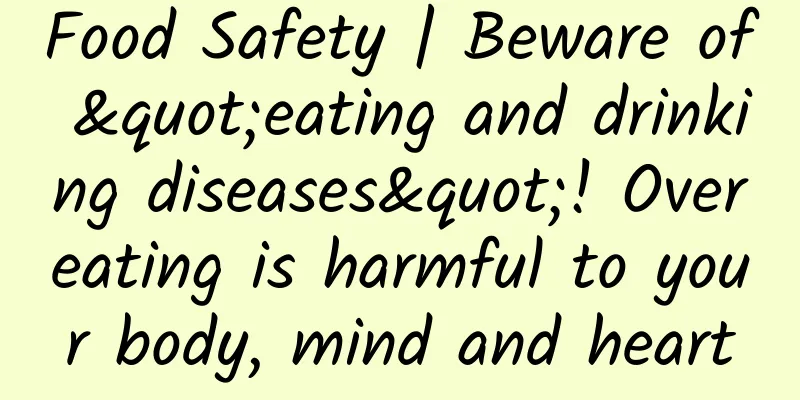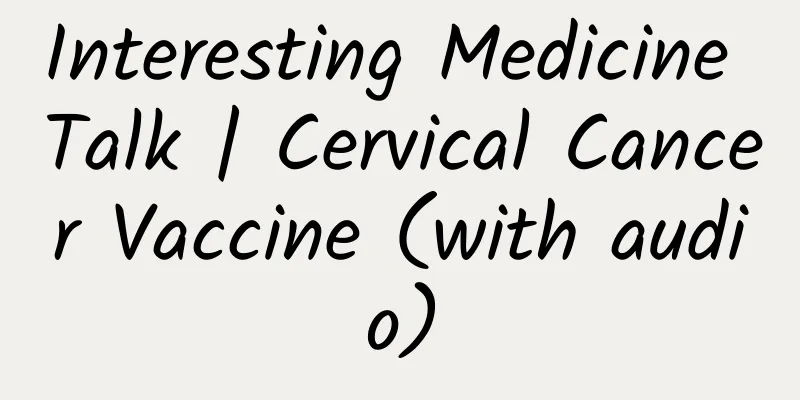Food Safety | Beware of "eating and drinking diseases"! Overeating is harmful to your body, mind and heart

|
As people's living standards improve, many people often go out for banquets, and in addition to three meals a day, they also eat snacks constantly. Such uncontrolled eating will not only "eat" many diseases, cause premature aging, shorten life span, but also directly threaten life safety. Therefore, it should arouse the attention of each of us. Traditional Chinese medicine points out that "eating too much will damage the stomach and intestines." The direct harm of overeating is that it will damage the stomach and intestines, increasing the burden on the gastrointestinal tract, which may lead to indigestion at the mildest and damage the gastrointestinal mucosa at the worst, thus causing gastritis, enteritis, and gastric mucosal erosion and ulcers, which may induce acute gastric dilatation, gastric stasis, cholecystitis and pancreatitis. Long-term overeating may bring health risks to all systems of the body. 1. "Harmful to the body". Overeating can easily lead to excess energy and cause overweight and obesity. This is due to excessive food intake, especially eating foods rich in high fat, high calories and high protein. Excessive intake often leads to fat accumulation in the body, making the body fat and causing metabolic syndrome. 2. "Upsetting the mind". When people eat too much food, digestion and absorption require more blood circulation, and various body functions are in a working state, which can easily make people feel tired and often drowsy. 3. "Kidney damage". Long-term overeating will also increase the burden on the kidneys, because the kidneys have the function of excreting garbage and waste from the body. Overeating will cause too many metabolic products to be excreted from the kidneys, causing the kidneys to operate for a long time without rest, resulting in renal failure. 4. "Brain damage". Overeating can cause slow brain reaction, memory loss, accelerate brain aging and even induce Alzheimer's disease. Long-term excessive eating or overeating can cause a large amount of blood in the body, including the brain, to be transferred to the gastrointestinal tract, resulting in a relative lack of blood and oxygen supply to the brain. 5. "Sadness". For patients with high blood lipids and coronary heart disease, overeating at one time may induce angina pectoris or even myocardial infarction. Many cases of myocardial infarction occur after overeating, because after eating a large amount of high-fat, high-calorie food, the blood lipid concentration suddenly increases, resulting in increased blood viscosity and increased platelet aggregation. Thrombosis is formed on the basis of coronary artery stenosis, causing acute myocardial infarction. Expert interviewed: Yao Ying, chief physician of the Department of Clinical Nutrition, Tongji Hospital, Huazhong University of Science and Technology |
<<: Acupoints for health | If you suddenly have stomachache, massage Zusanli and Zhongwan
>>: World Breastfeeding Week丨Do I need to reduce breast milk when adding complementary foods?
Recommend
Pregnant woman with recurrent low-grade fever at 14 weeks
Pregnancy is in the middle stage around 14 weeks....
Pregnancy signs that must appear in one month
In TV dramas, there are often scenes where women ...
What is the disease of women being suspicious?
Many women have symptoms of suspicion, especially...
Drugs to increase libido in women
In fact, many female friends know that their sexu...
Doctors warn: Nail changes may be cancerous! Don’t take it lightly!
Recently, the topic #suddenly a black line grew o...
Why do women's private parts become dirtier the more they wash?
Leucorrhea is a discharge from women's vagina...
What causes women to have eye bags?
Eye bags refer to swelling of the lower eyelids. ...
Can pears reduce internal heat?
Many people have eaten pears. Pears are a very co...
How to treat yellow-green leucorrhea
I believe that all women do not want to have abno...
How much money can a pair of OK lenses save after centralized procurement? Here are the things parents should pay attention to
Produced by | Eye Health is Real Author | Chen Zh...
Pregnant women dream of blood, it means a boy or a girl
Dreams themselves are a description of complex ps...
Signs of poor milk quality
For babies who are breastfed, the quality of milk...
My period came five days early
The menstrual period of women is figuratively cal...
Pregnant women's blood routine neutrophil count is high
Pregnant women must undergo multiple examinations...
30-year-old women should avoid these misunderstandings when dressing in autumn
Although 30 years old may be a major milestone in...









